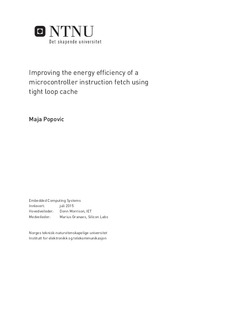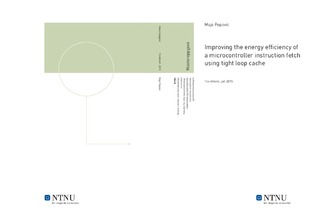| dc.description.abstract | Recently there has been a lot of effort in making the Internet of Things (IoT) a reality. A central component of this vision is to make low power edge sensor nodes (i.e., nodes with few connections that are not used to route data) in a mesh network. Such systems are often composed of a low power microcontroller coupled with a low power radio operating at low speeds with long duty cycles. A lot of research has been conducted with regards to reducing the power consumption of these systems.
A significant portion of the energy is used for fetching instructions from flash. In some low-power microcontrollers a small cache is used to exploit temporal locality in the instruction stream. Energy is saved, because SRAM used in caches require less energy than flash.
Cache is a very old and well known technique to exploit such differentials in speed/energy. This masters thesis will build on the tight loop cache approach, use software simulations to evaluate if it can be used in an application to save energy, proceed to its hardware design and implementation and compare results.
Master thesis was a collaboration between the CARD group and Silicon Labs, where Marius Grannæs was a co-supervisor. | |

